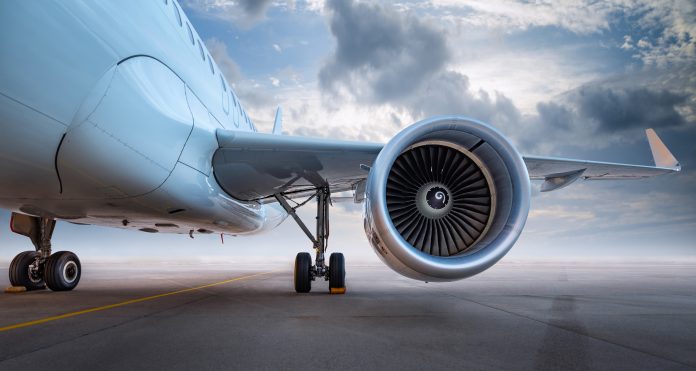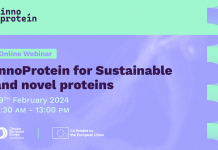Sarah Wilkin, Founder & CEO of Fly Green Alliance (FGA), looks at how the airline industry is working to reduce its carbon footprint through the use of sustainable aviation fuel
The airline industry being grounded is now just one of the biggest challenges aviation has faced since the first commercial flight in 1914.
Climate action and carbon reduction of an industry responsible for 3% of global CO2 and using 95 billion gallons of aviation fuel per year (2019) is an enormous challenge to handle.
However, it is a challenge that is now being met head-on. Every sizeable and commercial airline across the globe is carrying out action to reduce its footprint.
Governments and the airlines themselves are working to produce and procure sustainable aviation fuel (SAF). What could be called the ‘golden bullet.’
The Jet Zero Council
In the UK, the Jet Zero Council, established in 2020, is moving the industry forward with grants, strategies and public-private partnerships in a bid to start the flow of investment into the naissant industry.
COP26, held in Glasgow in 2021, brought a group together, including BA, Heathrow, Department for Transport and fuel producers, to pilot an approach to SAF use for delegates to be used and replicated at major event level, work that Fly Green Alliance was involved with.
Last year, five projects were granted in the UK through JZC with the plan to be online by 2025 in a bid to reduce carbon in the industry by 2050. Aviation won’t meet 2030 targets, but a start to carbon reduction and tech development is underway. It has been for ten years already, with greater acceleration within the last few years.
Granted projects include: LanzaTech, alfanar, Velocys x2, and Fulcrum BioEnergy (1) Each plant will cut CO2 emissions by 200,000 tonnes on average every year (2) when fully operational – equivalent to taking away 100,000 cars from the road.
Supporting sustainable aviation fuel
Public-private partnerships, such as through the Jet Zero Council, begin to demonstrate to investors that the government is supporting SAF.
Although the investment of £165 million is relatively small compared to what is needed to scale the industry, billions are required. It is now moving from an investment and policy perspective across the EU, UK and U.S.; and testing production issues at scale is underway.
Tim Alderslade, Chief Executive of Airlines UK, said: “The jet zero strategy was a real statement of intent from government that aviation, without the carbon, is an achievable end goal by 2050.
“This £165 million of funding – alongside the 10% SAF mandate by 2030 shows the government shares our ambition of a home-grown SAF industry here in the UK.
“This could generate tens of thousands of jobs and huge GVA, levelling up and exports potential for the UK. It’s a big prize and one we are committed to working with ministers to achieve.” (3)
Sustainable aviation fuel can lower emissions by up to 80% on the lifecycle. What we are discussing here is a hydrocarbon-based fuel for combustion engines. Molecule-for-molecule, the renewable or alternative fuel will match jet fuel and be certified safe to fly on by ASTM. (4)
Synthetic fuel developments
The Federal Aviation Administration (FAA) in the U.S. first started to test synthetic fuel developments when fuel security was a risk in 2006-09 when it was thought that petroleum reserves would run out. It was discovered that it is indeed possible to manufacture fuel from waste and hydrocarbons already within the system.
We now have an immediate need to reduce fossil fuels being taken out of the ground, and we already have abundant material. Producers, scientists and innovators are currently working on shifting the need and burden on fossil-based oil to above-ground readily available material.
As Will Walsh, Director General of the International Air Transport Association (IATA), succinctly put it: “You’re recycling the CO2 – that’s what it’s about, reducing or maintaining or not increasing the levels of CO2.” (5)
eFuels, which can also use carbon from the air and green hydrogen, do exist, and some projects are coming online soon, but the economics are still a challenge, and the scales of the economy need to improve quickly.
Can the planet handle carbon safely?
Yale (6) scientists discuss that the planet can safely handle around 1 trillion tonnes of carbon. Since 1860, we have used 500 billion tonnes. As we now use 50 billion per year, we have about ten years to reduce CO2 emissions and switch our energy supplies.
Even in 1923, scientist JBS Haldane stated to be making sense for the planet, our energy system should be hydrogen and renewables.
People and society are said to be able to reduce carbon by 27% – (BBC Sounds – Rethink Climate), meaning the industry needs to handle the rest. (7)
Promoting green travel
Fly Green Alliance, amongst other pioneers, have been working to promote green travel, low-carbon fuels, sustainable travel policies; and developing products, financial mechanisms and further application of Science Based Targets. Work is ongoing, but a tipping point was reached on SAF post-pandemic.
Sustainability is a competitive advantage in aviation, with most attention going to sustainable aviation fuel. Are you ready to pay to fly green?
References
- https://www.gov.uk/government/publications/advanced-fuels-fund-competition-winners/advanced-fuels-fund-aff-competition-winners
- https://www.gov.uk/government/news/lift-off-for-projects-fuelling-jet-liners-with-bin-liners
- https://eandt.theiet.org/content/articles/2022/12/government-awards-165m-to-green-jet-fuel-projects/
- https://flygreenalliance.org/what_is_saf_/
- https://amp-theguardian-com.cdn.ampproject.org/c/s/amp.theguardian.com/business/2023/jun/10/airlines-hope-that-sustainable-fuels-will-propel-them-to-a-guilt-free-future
- https://e360.yale.edu/features/what_is_the_carbon_limit_that_depends_who_you_ask#:~:text=We%20could%20have%20more%20than,be%20on%20the%20safe%20side
- https://www.bbc.co.uk/sounds/play/m001gkq8















